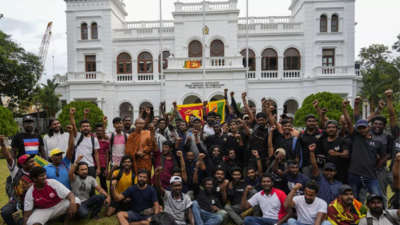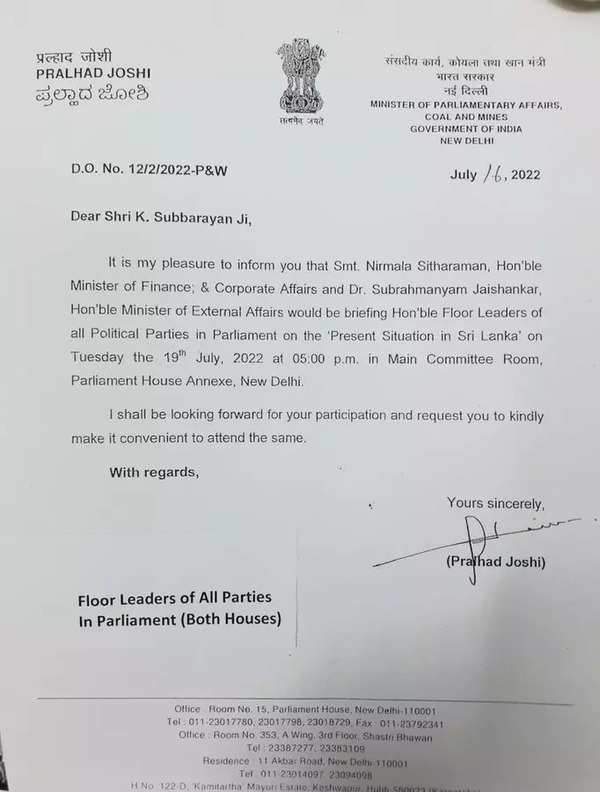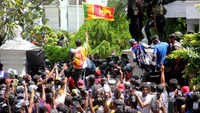- News
- India News
- Govt calls all-party meet on Sri Lanka crisis on July 19
Trending
This story is from July 17, 2022
Govt calls all-party meet on Sri Lanka crisis on July 19
The government has called an all-party meeting on July 19 on the Sri Lankan crisis which will be briefed by Union ministers Nirmala Sitharaman and S Jaishankar, parliamentary affairs minister Pralhad Joshi said on Sunday.

Earlier in the day, an all-party meeting was convened ahead of the Monsoon Session of Parliament during which Tamil Nadu-based DMK and AIADMK raised the Sri Lankan issue, especially the condition of the country's Tamil population.

The two parties demanded that India intervene in the neighbouring country which is facing a debilitating economic crisis.
In favour of peaceful resolution: MEA
The ministry of external affairs recently stated that it will continue to stand by the people of Sri Lanka and that it was in favour of a peaceful resolution of the ongoing crisis “through democratic means and constitutional framework”.
The MEA said ensuring peace, stability and prosperity in all countries in the region was an important aspect of India’s ‘Neighbourhood First’ policy as well as its vision for security and growth for all.
India has been helping Sri Lanka with fuel and ration supplies. Last week, Jaishankar said India had committed $3.8 billion for Sri Lanka. India has also handed over 44,000 metric tonnes of urea under a credit line extended to help Sri Lankan farmers.
100 days of protest
Sri Lanka is facing its worst economic crisis in seven decades, with a severe foreign exchange shortage hampering the import of essentials including food, fuel and medicines. The economic crisis also sparked a political crisis in the country after a popular uprising against the government.
Sri Lanka's protest movement reached its 100th day on Sunday having forced one president from office and now turning its sights on his successor (acting president Ranil Wickremesinghe) as the country's economic crisis continues.
Gotabaya Rajapaksa fled his palace shortly before demonstrators invaded it last weekend and on Thursday resigned from the presidency. His mismanagement is blamed for Sri Lanka's financial turmoil, which has forced its 22 million people to endure shortages of food, fuel and medicines since late last year.
The campaign to oust Rajapaksa, organised mainly through posts on Facebook, Twitter and TikTok, drew people from across Sri Lanka's often unbridgeable ethnic divides. United by economic hardships, minority Tamils and Muslims joined the majority Sinhalese to demand the ouster of the once-powerful Rajapaksa clan.
(With inputs from agencies)
End of Article
FOLLOW US ON SOCIAL MEDIA












